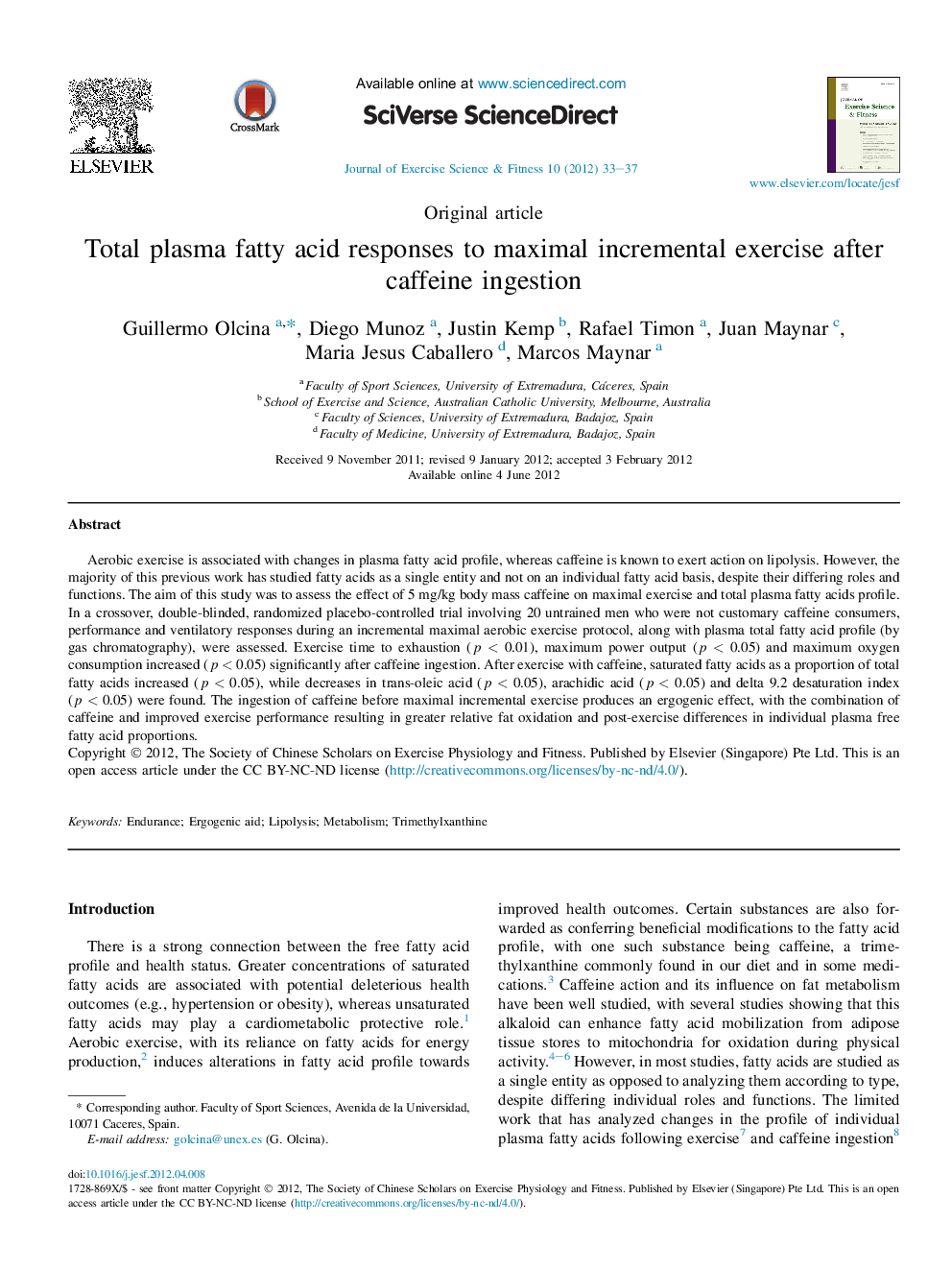| Article ID | Journal | Published Year | Pages | File Type |
|---|---|---|---|---|
| 2739728 | Journal of Exercise Science & Fitness | 2012 | 5 Pages |
Aerobic exercise is associated with changes in plasma fatty acid profile, whereas caffeine is known to exert action on lipolysis. However, the majority of this previous work has studied fatty acids as a single entity and not on an individual fatty acid basis, despite their differing roles and functions. The aim of this study was to assess the effect of 5 mg/kg body mass caffeine on maximal exercise and total plasma fatty acids profile. In a crossover, double-blinded, randomized placebo-controlled trial involving 20 untrained men who were not customary caffeine consumers, performance and ventilatory responses during an incremental maximal aerobic exercise protocol, along with plasma total fatty acid profile (by gas chromatography), were assessed. Exercise time to exhaustion (p < 0.01), maximum power output (p < 0.05) and maximum oxygen consumption increased (p < 0.05) significantly after caffeine ingestion. After exercise with caffeine, saturated fatty acids as a proportion of total fatty acids increased (p < 0.05), while decreases in trans-oleic acid (p < 0.05), arachidic acid (p < 0.05) and delta 9.2 desaturation index (p < 0.05) were found. The ingestion of caffeine before maximal incremental exercise produces an ergogenic effect, with the combination of caffeine and improved exercise performance resulting in greater relative fat oxidation and post-exercise differences in individual plasma free fatty acid proportions.
